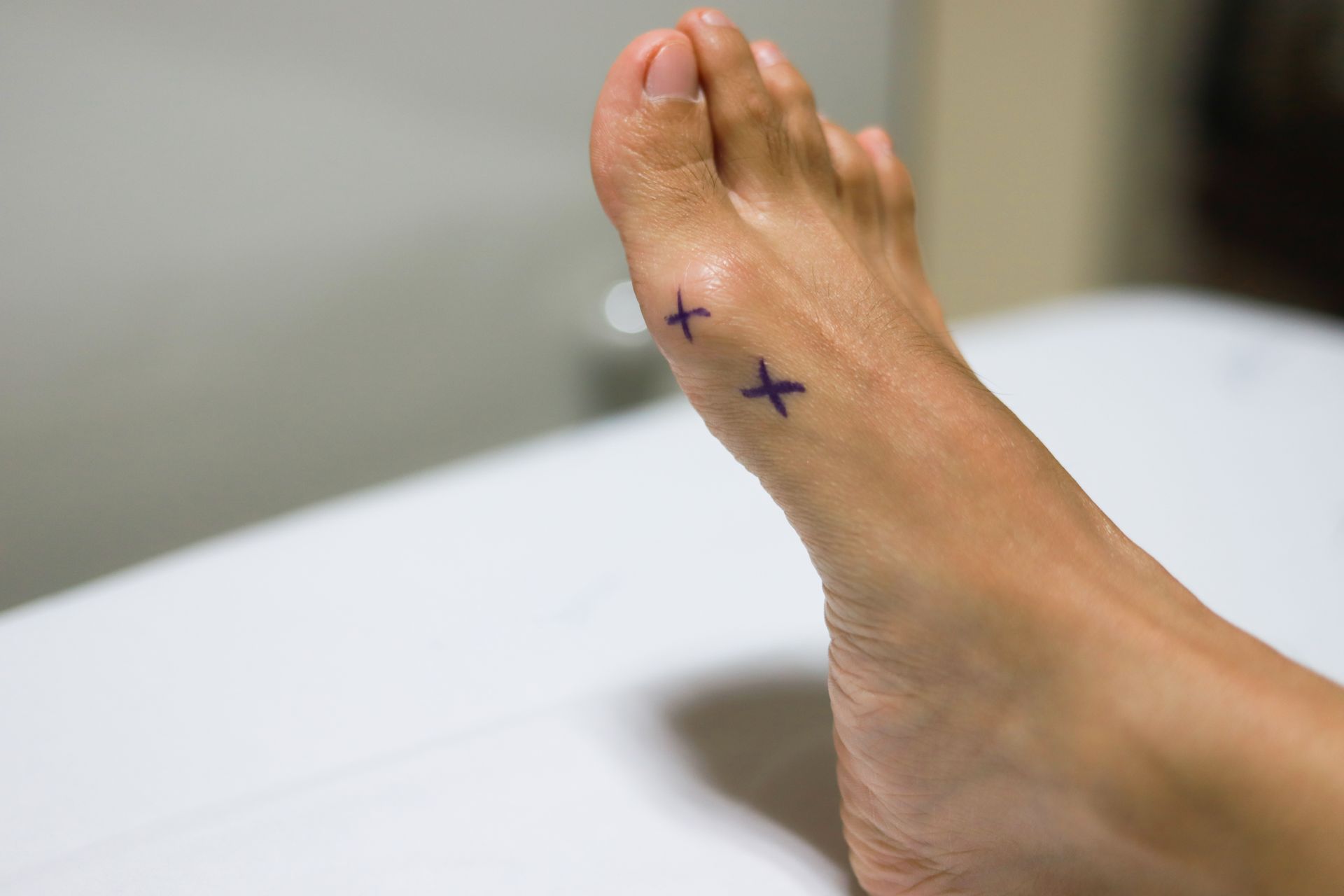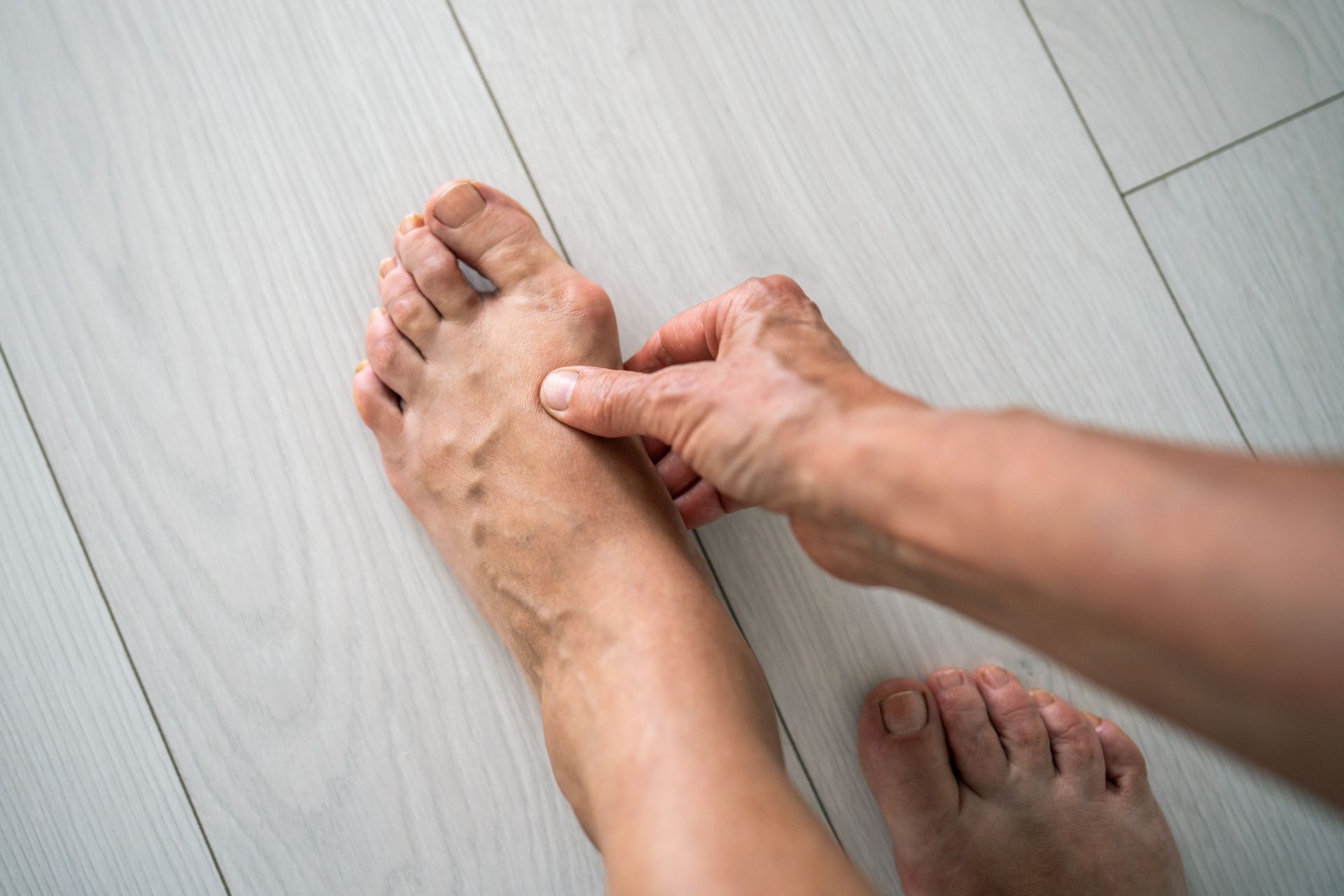Understanding Morton's Neuroma and Forefoot Pain
One of the most common causes of forefoot pain is Morton's Neuroma —a benign thickening or swelling of a nerve that runs just in front of the toes. While Morton's Neuroma is typically found between the third and fourth toes, it may also appear between the second and third toes. Recent studies estimate that Morton's Neuroma affects around 10% of the population, with higher occurrences in women, likely due to footwear choices and foot structure.
Deductible Met? Schedule YOUR Surgery Now
Symptoms of Morton's Neuroma
People with Morton's Neuroma often experience:
- Pain in the ball of the foot
- Burning, tingling, and numbness in the toes
- Localized discomfort that can radiate among multiple toes
These symptoms often intensify when walking or wearing tight or high-heeled shoes as pressure compresses the nerve further.
Non-surgical Treatment of Morton's Neuroma
Most patients (around 80%) report satisfactory results with non-surgical treatments. This conservative approach includes:
- Pads and cushions to offload pressure from the ball of the foot
- Shoe modifications that emphasize a wide toe box, lower heels, and supportive insoles
- Medication and steroid injections to reduce inflammation and pain
- Physical therapy for foot and ankle strengthening
- Walking boots or splints that temporarily immobilize the foot, allowing it to heal and minimizing pressure on the nerve
Recent advancements in non-surgical treatment include ultrasound-guided injections and radiofrequency ablation to reduce nerve pain with minimal invasiveness.
Morton's Neuroma Surgery
If conservative treatment does not relieve symptoms,
neurectomy surgery may be recommended. This procedure involves the removal of the affected nerve. Surgeons may choose either a dorsal (top) incision or a plantar (bottom) incision, each with unique benefits:
- Dorsal Incision: Allows patients to walk sooner post-surgery but may be associated with a slightly higher risk of residual nerve tissue forming a "stump" neuroma.
- Plantar Incision: Reduces the likelihood of a stump neuroma as it allows better access to the neuroma but may increase the chance of a painful scar.
Success Rates and Patient Satisfaction for Morton's Neuroma Surgery
The success rate of neurectomy surgery is high, with 80% - 9% of patients experiencing good to excellent results. However, patients with neuromas in both feet or multiple neuromas in one foot may report less satisfaction. Recovery time varies, but most patients can resume normal activities within 3–4 weeks, depending on the incision site and healing rate.
Potential Complications of Morton's Neuroma Surgery
While complications are uncommon, they can include:
- Infection – A rare risk, typically managed with antibiotics.
- Regrowth or recurrence of the neuroma – Estimated at less than 5% but can happen over time.
- Stump neuroma – Occurs more frequently with a dorsal incision, where scar tissue forms at the nerve ending, causing recurring pain.
- Painful scarring – More likely with a plantar incision, with approximately 3–5% of patients experiencing tenderness at the incision site.
If you're experiencing persistent forefoot pain or other symptoms of Morton's Neuroma, it may be time to consult a specialist. Scheduling an appointment can help you understand your treatment options and determine the best approach to relieve your pain. With the end of the year approaching, it's also a great time to consider surgery if you've already met your deductible, maximizing your insurance benefits. Reach out to our office today to discuss a treatment plan tailored to your needs and get back on your feet pain-free.


